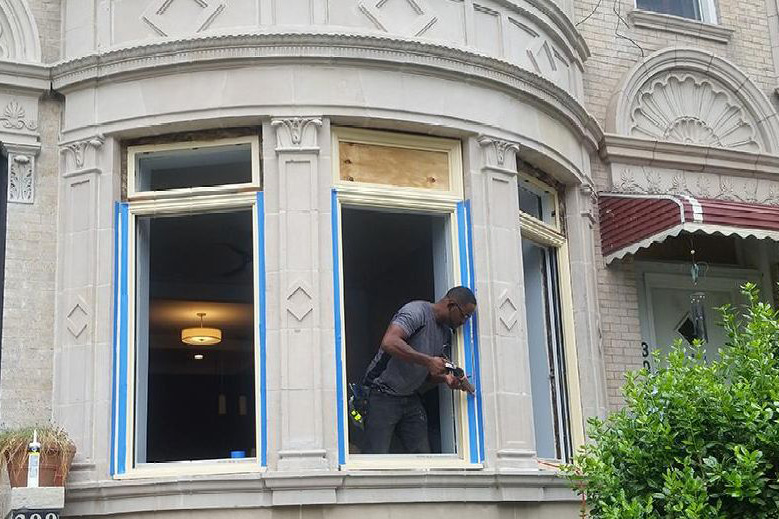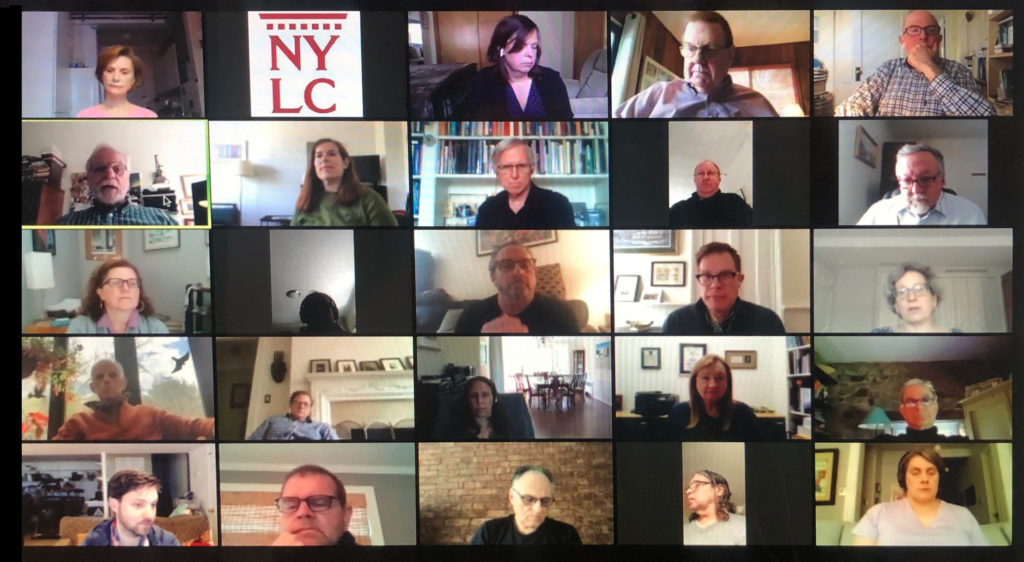As the City and State plan for some reopenings in coming weeks, and other states have resumed construction projects, preservation firms are grappling with a variety of issues.

Professional Circle Zoom Meeting: Neighbors called the police when a preservation construction crew arrived at an emergency project last week. They had to wait for City Buildings Department officials to confirm it was okay to be there. A preservation engineer is wondering if, and how, he should respond to a call to come to an essential project in D.C. A firm specializing in facade conditions surveys has a job waiting in Montana. But the founder wonders about flying and how to protect his colleagues when his insurance doesn’t cover pandemics. An architect on an essential state project in Buffalo found that working in masks six feet apart during a recent snowstorm isn’t very productive.
These were some of the comments and observations in a Zoom meeting we held last week for more than 50 of our Professional Circle members. These are top preservation architects, engineers and craftspeople.
In a normal year, (remember those?), there would be more than $800 million invested in preservation projects in New York City, providing some 9,000 local jobs. We heard some architects say they are busy planning projects so they can start as soon as the halt is lifted. Others, whose work is primarily with religious institutions and non-profits, are finding projects delayed or cancelled. Some firms received Federal Payroll Protection Loans. Others had banks that weren’t prepared initially and wonder if they will ever get some assistance. Many are wondering how to protect themselves and their colleagues in the office, let alone on projects, when things reopen.

Several expressed concern that the City halted planning on projects that already received capital budget funding. “They literally told architects to put their pens down,” one participant complained. This will delay those projects even more when it already takes years for this funding to wind though the City approval process. We know of several projects at Historic Houses that are being caught in this delay. And each of these irreplaceable buildings has already waited years for City funding for needed repairs.
So we will work with our Professional Circle colleagues on two fronts: letting City officials know that preservation projects are key to the City’s economic recovery and working to temporarily increase the Federal Historic Tax Credits which assist so many preservation projects throughout New York.
You can help by contacting your U.S. Representative and Senator and urging them to support a temporary increase in the Federal Historic Tax Credit from 20 to 30% as a vital economic recovery tool.
